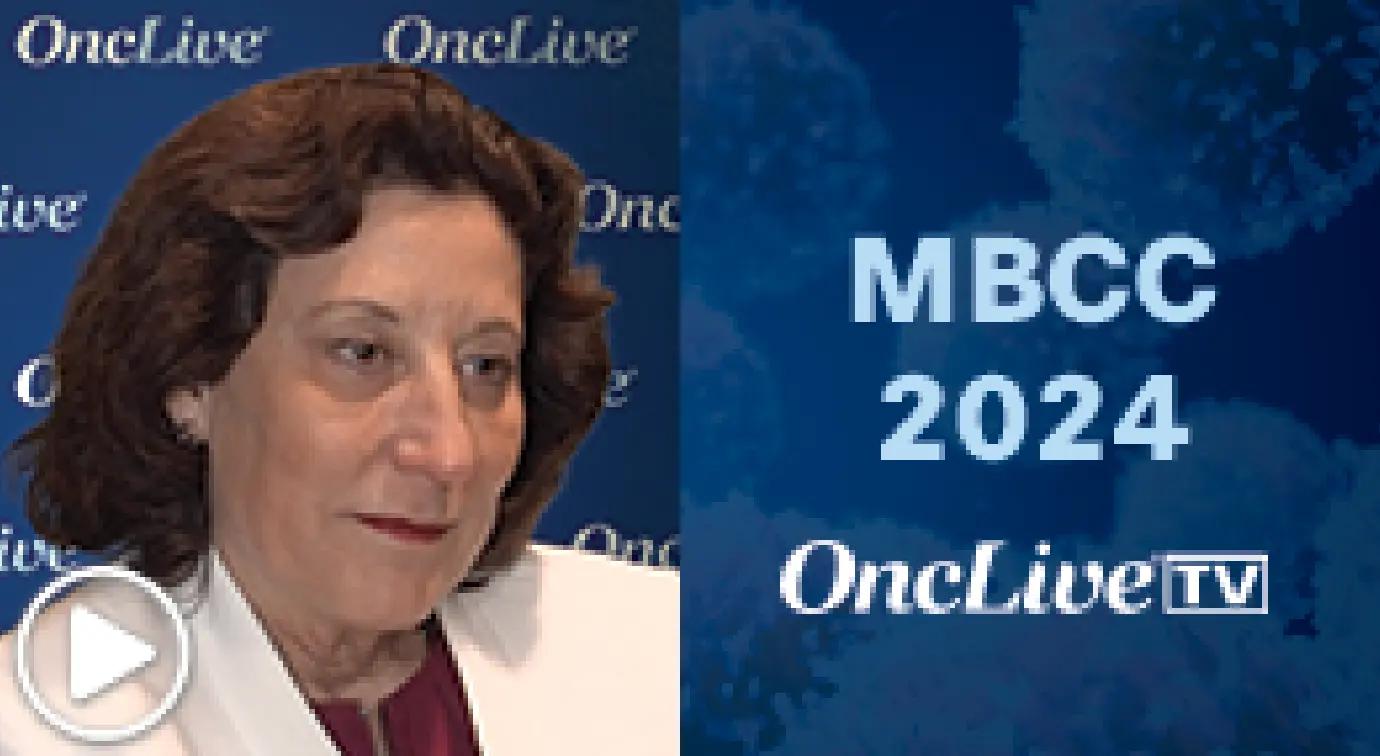Dr Rugo on the Evolution of ADCs in HR+/HER2+ and HER2-Low Breast Cancer

Hope Rugo, MD, Winterhof Family Endowed Professor in Breast Cancer, the University of California San Francisco (UCSF), professor, medicine, Department of Medicine (Hematology/Oncology), Division of Hematology and Oncology, director, Breast Oncology, director, Clinical Trials Education, director, Breast Oncology and Clinical Trials Education, medical director, Cancer Infusion services, UCSF Helen Diller Family Comprehensive Cancer Center, discusses the evolution of antibody-drug conjugates (ADCs) in the treatment of patients with hormone receptor (HR)–positive, HER2-positive, and HER2-low breast cancer.
Breast cancer treatment is rapidly advancing with the emergence of ADCs in HR-positive, HER2-negative breast cancer, HR-positive and triple-negative breast cancers, and the newer class of HER2-low disease, Rugo begins. These ADCs use improved linker technology, enhancing their efficacy in delivering cytotoxic payloads to cancer cells, she details. Although conventional ADCs primarily target receptors such as HER2 or TROP2, novel bispecific ADCs are in development, Rugo says. These agents would be directed toward targets such as EGFR and HER3 or HER2. However, selecting the optimal target receptor for ADC internalization remains a challenge, necessitating a thorough understanding of tumor biology to ensure effective treatment delivery, Rugo adds.
Ongoing ADC research is also exploring alternative targets, such as immune effector molecules, albeit in early stages compared with HER2- and TROP2-directed ADC development, Rugo continues. Despite these challenges, ADCs offer a promising approach to breast cancer treatment by delivering potent cytotoxic agents directly to cancer cells and simultaneously minimizing systemic toxicity, she states.
The success of ADCs lies in their ability to efficiently deliver potent toxins to cancer cells using minute amounts of payload, maximizing therapeutic efficacy and minimizing adverse effects, Rugo notes. This necessitates the development of potent toxins capable of inducing significant antitumor effects, she says. The remarkable progress in ADC development has surpassed expectations, offering new avenues for breast cancer therapy and improving outcomes for patients across diverse disease subsets, Rugo concludes.
Overall, ADCs represent a significant advancement in breast cancer treatment, providing targeted therapy options that hold immense promise for improving patient outcomes and potentially reshaping the standard of care in the field of oncology.
